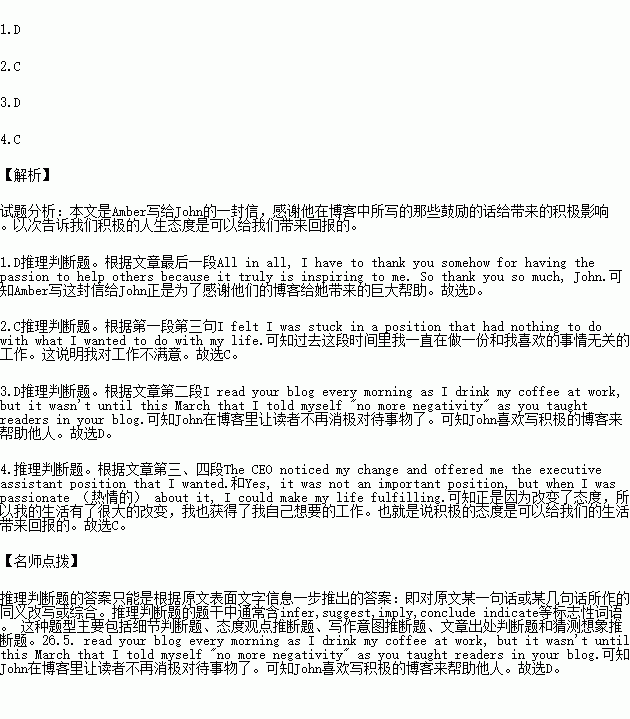题目内容
Dear John,
My name is Amber and I want to share my story with you because what you've shared about life and positive energy has changed my life. This past year has been one of the hardest for me. I felt I was stuck in a position that had nothing to do with what I wanted to do with my life. In January, after two years of being together, my boyfriend left me.
I read your blog every morning as I drink my coffee at work, but it wasn't until this March that I told myself "no more negativity" as you taught readers in your blog.
Since then I've got into new habits at work to keep my energy positive. When people walk in the front door, I'm the first face they see, so I smile big when I say "good morning" to them, especially on Mondays. Instead of waiting for someone to ask me for help, I offer it with an open mind. The CEO noticed my change and offered me the executive assistant position that I wanted.
One of the biggest things I've taken to heart from your blog is changing my opinions on my job. Yes, it was not an important position, but when I was passionate (热情的) about it, I could make my life fulfilling.
All in all, I have to thank you somehow for having the passion to help others because it truly is inspiring to me. So thank you so much, John. My life has changed because your words pointed me in the right direction, Take care!
Sincerely ,
Amber
1.Amber wrote the letter mainly to______
A. introduce herself to John
B. talk about her bad year
C. ask for some advice
D. express her thanks
2.We can infer from the passage that Amber______
A. didn't like her boyfriend
B. spent a lot of time online
C. wasn't satisfied with her job
D. received very good education
3.What is implied about John in the letter?
A. He is a very famous writer.
B. He used to live a very negative life.
C. He doesn't like sharing his life stories.
D. He likes helping others through writing positive blogs.
4.What does Amber's change tell us?
A. Practice makes perfect.
B. Bad luck doesn't exist long.
C. A positive attitude is rewarding.
D. A friend in need is a friend indeed.

